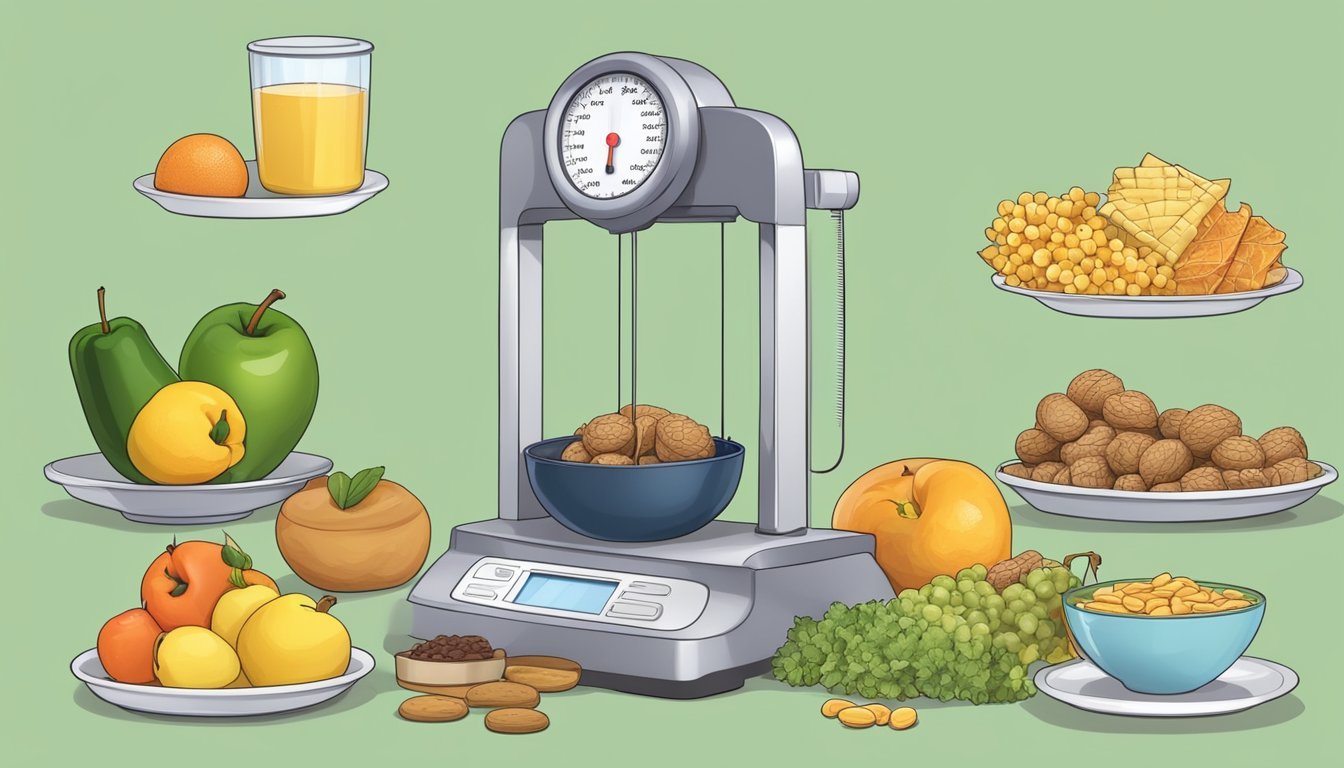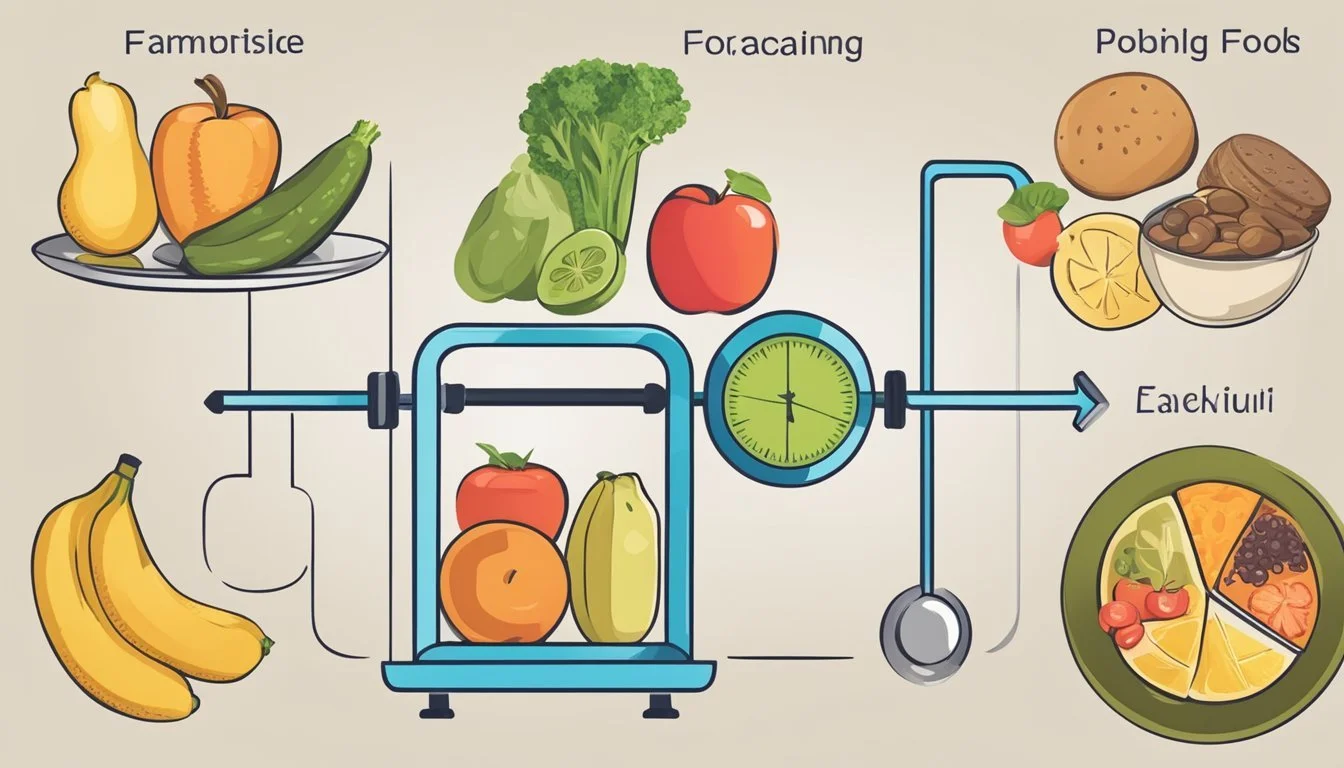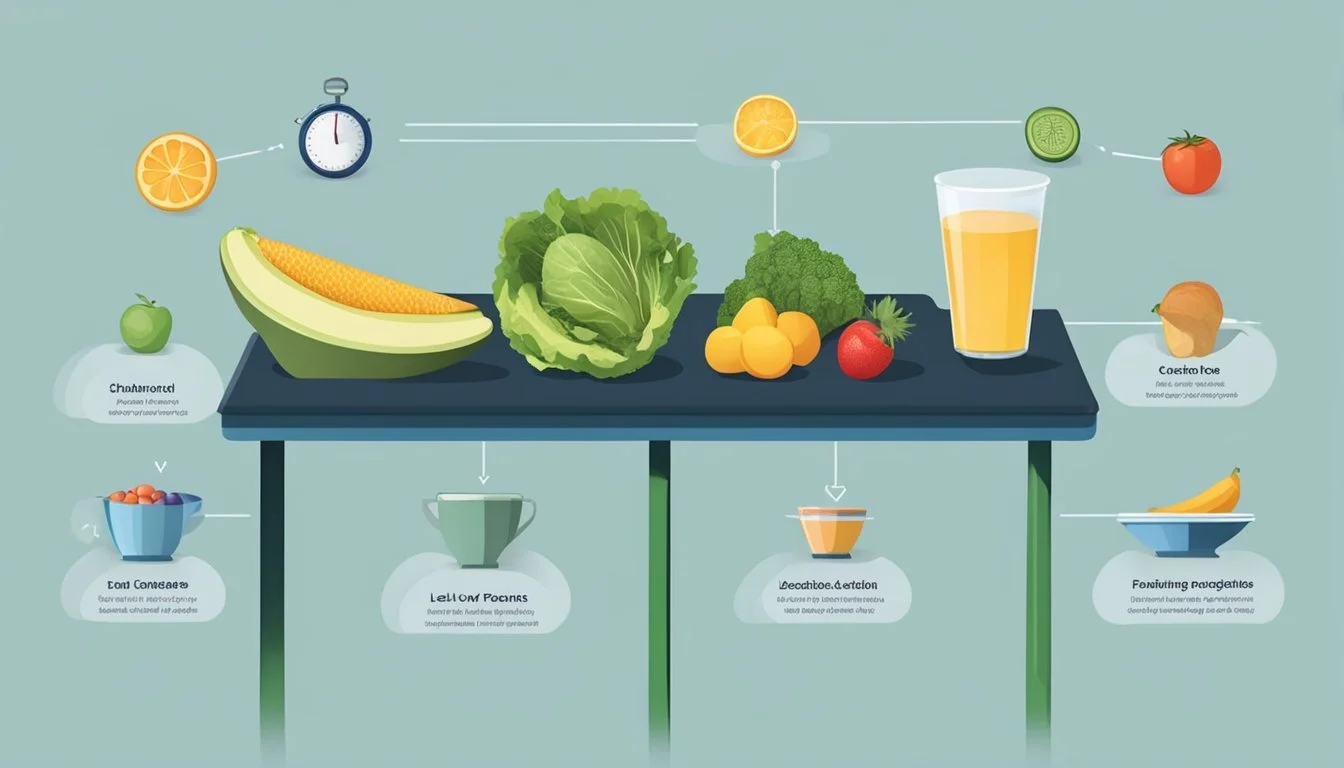Should You Always Choose Low-Calorie Foods?
Debunking Diet Myths
When considering weight loss or maintaining a healthy diet, low-calorie foods are often touted as a beneficial choice. Caloric content is a pivotal factor in dieting as it directly influences the body's energy balance. Consuming fewer calories than the body expends generally leads to weight loss. Therefore, choosing foods with a lower calorie count can be an effective strategy. These foods, such as berries, green leafy vegetables, and non-starchy vegetables, typically provide a high nutrient density, meaning they supply a variety of nutrients while being low in calories.
However, the approach to dieting with an exclusive focus on calorie count can be too simplistic. Not all low-calorie foods provide the same nutritional benefits, and a diet that is too restrictive in calories may lack essential nutrients, leading to potential health problems. Moreover, for some individuals, a diet too low in calories can slow down metabolism, ultimately hindering weight loss efforts. It's important to evaluate low-calorie foods within the context of the overall diet and lifestyle, aiming to create a balance that supports both weight management and overall health.
It's essential to understand that a healthy diet isn't solely about reducing caloric intake, but about choosing the right calories. This means selecting foods that are not only low in calories but also rich in vitamins, minerals, fiber, and other beneficial components. Satisfying hunger with nutrient-dense options, such as non-starchy vegetables and whole grains, is conducive to maintaining a healthy weight and overall well-being. Therefore, while low-calorie foods can be a component of a healthy diet, they should not be the exclusive focus at the expense of nutritional balance and variety.
Understanding Calories and Nutritional Value
The decision to choose foods based on their calorie content must consider their nutritional value. Not all calories are created equal—a calorie from a nutrient-rich food provides more than just energy.
What Are Calories?
Calories are units of energy that quantify the amount of energy a food provides to the body. The body requires this energy to perform all its functions, from basic metabolic processes to physical activity. However, calories do not inherently carry nutritional value—they merely represent potential energy.
The Role of Nutrients in Diet
Nutrients are substances in foods that the body needs to grow, repair itself, and to function properly. While calories provide energy, important nutrients such as proteins, fats, vitamins, and minerals support a range of bodily functions and maintain health. Consuming a variety of nutrients is pivotal for a well-rounded diet.
Key Nutrients and Their Functions:
Proteins: Essential for tissue repair and muscle growth
Fats: Necessary for brain health and energy
Vitamins: Crucial for immune function and cell health
Minerals: Important for bone density and fluid balance
Balancing Calories and Nutrient Density
Nutrient density refers to the concentration of nutrients per calorie in a food. Foods high in nutrient density, such as fruits and vegetables, provide significant nutrients with fewer calories. In contrast, foods with empty calories provide energy but lack nutritional benefits. For a balanced diet, it is crucial to choose foods that are both nutritious and appropriately caloric according to one's personal health goals.
The Impact of Low-Calorie Foods on Weight Loss
Low-calorie foods contribute to a calorie deficit, which is pivotal for weight loss. Let's explore how incorporating these foods can benefit weight loss efforts and consider their long-term effects on dieting.
Caloric Deficit and Weight Loss
Weight loss occurs when the body expends more calories than it consumes, creating a caloric deficit. A low-calorie diet, which typically involves consuming 1,200 to 1,500 calories per day, assists in forming this deficit. As the body is required to tap into stored energy to make up for the shortfall, fat stores are utilized, resulting in weight loss.
Advantages of Low-Calorie Foods for Losing Weight
Low-calorie foods can have several advantages for individuals looking to lose weight:
Satiety: Foods like potatoes, beans, and legumes are low in calories but high in fiber and protein, promoting satiety and making it easier to stick to a low-calorie intake.
Volume: Large volumes of low-calorie foods, such as leafy greens, can be eaten, helping individuals feel full without significantly increasing caloric intake.
Example: A bowl of mixed greens might contain less than 100 calories but occupy substantial stomach space.
Long-term Effects of a Low-Calorie Diet
Maintaining a low-calorie diet can yield weight loss initially, but its sustainability in the long term is debatable. Metabolism might slow down in response to prolonged caloric restriction, affecting the body's ability to continue losing weight efficiently. Moreover, a very low-calorie diet can sometimes lead to:
Nutritional deficiencies, due to limited food variety
Possible loss of muscle mass, as the body seeks energy from muscle tissue in the absence of sufficient caloric intake
Pros and Cons of Low-Calorie Foods
Selecting low-calorie foods can sometimes lead to weight loss and may promote a healthier lifestyle, but it's crucial to balance calorie intake with nutritional value to avoid potential health drawbacks.
Benefits of Incorporating Low-Calorie Foods
Filling: Low-calorie foods often have a high water or fiber content, which can help individuals feel full longer and reduce overall hunger. Examples include:
Berries: Offer fiber and are naturally low in calories
Green leafy vegetables: Provide volume and nutrients with minimal calories
Nutritional Value: Many low-calorie foods are rich in vitamins, minerals, and antioxidants, making them nutrient-dense choices. Key nutrient-dense options are:
Fat-free yogurt: A great source of calcium and probiotics
Non-starchy vegetables: Typically loaded with vitamins and minerals
Potential Drawbacks and Nutritional Concerns
Nutritional Deficiencies: Solely focusing on the calorie content of foods can lead to an unbalanced diet that lacks essential nutrients. It is possible that:
Some low-calorie foods: May not provide enough fat, which is necessary for vitamin absorption and hormone production
Restrictive low-calorie diets: Could lead to deficiencies in vitamins, minerals, and proteins
Satiety: While low-calorie foods can be filling, they may not always satisfy hunger if they lack adequate protein and healthy fats, elements that provide longer-lasting fullness and satiety.
Snacking: Individuals may find themselves snacking more frequently if their meals are not calorically sufficient to meet their daily energy needs, potentially leading to overeating.
Choosing Low-Calorie Foods Wisely
When selecting low-calorie foods, consumers should aim for options that offer high nutritional value and satisfaction without empty calories. It's not just about the calorie content, but the overall benefits the food can provide.
Identifying Truly Nutrient-Dense Options
Nutrient-dense foods are those that provide vitamins, minerals, and other beneficial substances with relatively few calories. When exploring low-calorie options, it's essential to focus on those that are rich in nutrients. For instance:
Lean proteins like chicken breast (What wine goes well with chicken breast?), turkey, or tofu support muscle growth and repair.
Whole grains deliver fiber, which can help maintain digestive health and provide a longer sensation of fullness.
Fiber-rich vegetables and fruits not only have low caloric content but also are packed with necessary nutrients like vitamins, minerals, and antioxidants.
The Importance of Variety in a Low-Calorie Diet
A varied diet ensures a broad spectrum of nutrients, minimizing the risk of deficiencies. One should incorporate a balance of:
Fruits and vegetables of varied colors
Different whole grains
A range of proteins from both animal and plant sources
This variety supports overall health and can also make a low-calorie diet more enjoyable and sustainable in the long term.
Tips for Satisfying Hunger with Lower Calories
To sustain a feeling of fullness on a diet with fewer calories, people should consider the following strategies:
Incorporate protein in every meal since it offers a high satiety level.
Add fiber to meals through salads, vegetables, and whole grains to help slow digestion and minimize hunger pangs.
Opt for foods in their whole form, as they often require more chewing, which can contribute to the feeling of satiety.
Stay hydrated, as water can help control hunger and it's easy to mistake thirst for hunger.
Incorporating Low-Calorie Foods into Daily Meals
Choosing low-calorie food options can contribute to a well-balanced diet and help maintain a healthy weight. Here are meal and snack ideas that incorporate low-calorie foods for different times of the day.
Breakfast Ideas with Low-Calorie Foods
Fruit-Filled Oatmeal: A bowl of oatmeal topped with berries is a fiber-rich choice. Oats provide satiety while berries add sweetness without excessive calories.
Vegetable Omelette: Eggs offer protein, and adding spinach, tomatoes, and mushrooms creates a nutrient-dense, low-calorie start to the day.
Lunch and Dinner Options
Grilled Chicken Salad: A salad with lean protein such as skinless chicken breast, mixed greens, and a variety of vegetables dressed with a low-calorie vinaigrette is both filling and low in calories.
Sweet Potato and Black Bean Tacos: Use sweet potato slices as a nutritious, low-calorie substitute for taco shells, filled with fiber-rich black beans and avocado.
Healthy Snacks and Beverages
Snack Choices:
Fresh vegetables like carrot sticks or cucumber slices.
Air-popped popcorn without added butter or sugar.
Beverage Options:
Water is the ultimate low-calorie beverage, essential for hydration.
Herbal teas can be enjoyed without adding sugars or sweeteners, offering a soothing, calorie-free drink.
Considerations for Specific Groups
When considering whether to choose low-calorie foods, one must take into account the varying nutritional needs specific to different demographics, such as age and lifestyle activity levels.
Age-Related Dietary Adjustments
Infants and Toddlers (0-2 years): For this group, added sugars should not be introduced into the diet due to their developing taste preferences and nutritional requirements.
Children (2-18 years): The caloric intake should support growth and development. Particular focus should be on consuming fruits, vegetables, whole grains, lean proteins, and dairy, while keeping added sugars and saturated fats to less than 10% of their total caloric intake.
Sodium: Intake should not exceed 2,300 milligrams per day.
Adults (19-60 years): Adults should tailor their diet to maintain a healthy weight and prevent chronic diseases. Balance and moderation are key, opting for nutrient dense foods over low-calorie options that may be less nutritious.
Older Adults (60+ years): Reduced caloric needs due to a slower metabolism, yet a greater need for nutrient-rich foods to maintain health and cognitive function.
Pregnant and Lactating Women: They require increased calories and nutrients to support fetal development and breast milk production. Selecting nutrient-dense foods, which may be higher in calories, is essential.
Athletes and High-Activity Lifestyles
Recreational Athletes: It's not just about low calories but the right type of calories. They should focus on a balanced diet rich in carbohydrates for energy, proteins for muscle repair, and fats for endurance.
Elite Athletes: They need a significantly higher caloric intake which should be guided by a sports nutritionist to match their rigorous training needs. The quality of calories is important to optimize performance and recovery.
Carbohydrates: Vital for fueling high levels of physical activity.
Protein: Should be increased to support muscle repair.
Fats: Necessary but should come from healthy sources.
In summary, when considering low-calorie foods, it's important to focus on the nutritional value and the specific needs of the individual rather than solely on calorie content.
Consulting with Professionals
When considering a diet focused on low-calorie foods, it is crucial to seek guidance from healthcare professionals, especially when there are existing health concerns such as heart disease. They can provide personalized advice tailored to an individual's specific nutritional needs and health goals.
The Role of a Registered Dietitian
A registered dietitian (RD) is a qualified expert who specializes in food and nutrition. Their role is to offer evidence-based dietary advice and create customized meal plans that cater to the individual's caloric needs and health conditions. When selecting low-calorie options, a dietitian aids in ensuring that the diet is still nutrient-dense and balanced, to avoid deficiencies that could harm overall health.
Responsibilities of an RD:
Assessment of nutritional needs and diet restrictions.
Development of tailored meal plans.
Continuous monitoring and support of dietary progress.
Understanding Heart Disease and Diet Correlation
The correlation between heart disease and diet is significant, with nutrition being a key factor in the management and prevention of cardiovascular conditions. Dietitians often educate patients on how certain foods can influence heart health. For example, they might recommend calorie-appropriate diets that are low in saturated fats and high in fiber and whole grains to support cardiovascular function.
Dietary Strategies for Heart Disease:
Include foods rich in omega-3 fatty acids, like salmon and flaxseed.
Limit intake of sodium and high-cholesterol foods.
Encourage consumption of fruits, vegetables, and lean proteins.
Both subsections emphasize the importance of professional guidance in making informed dietary choices, especially for individuals with specific health concerns such as heart disease.







